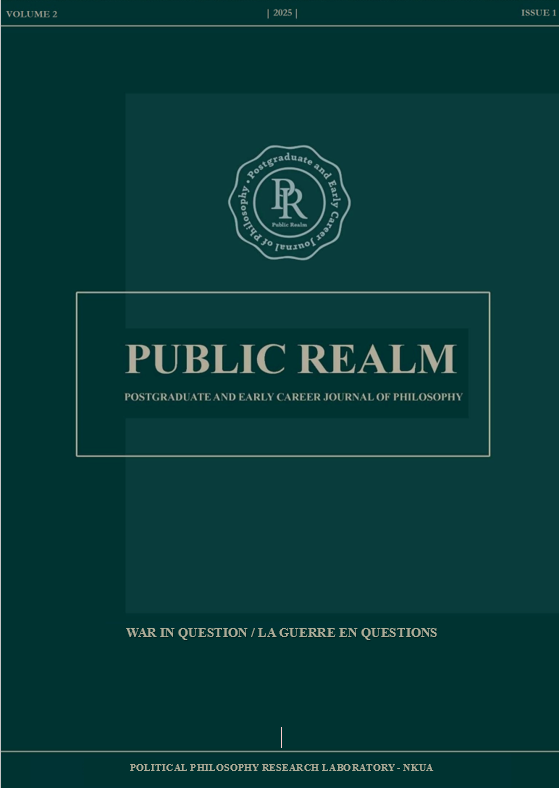Elizabeth Anscombe on Just War, Legitimate Killing, and Double Effect

Abstract
This paper examines Elizabeth Anscombe’s theory of just war and argues that Anscombe’s central thesis is that nothing can justify the deliberate killing of the innocent in war. This paper covers two aspects. First, by discussing the justification and limitations of legitimate killing, Anscombe claims that civilians, as the innocent, can never be the target of legitimate killing. Second, Anscombe’s distinction between intention, foreseeing, and accident in her action theory explains how the principle of double effect has been misused to justify the killing of civilians in war; and her analysis of “intention” responds to the challenge of “how do we know people’s intention?” and explains the applicability of the principle of double effect in the context of killing civilians in war.
Article Details
- How to Cite
-
DENG, Y. (2025). Elizabeth Anscombe on Just War, Legitimate Killing, and Double Effect. Public Realm. Postgraduate and Early Career Journal of Political Philosophy, 2, 87–100. https://doi.org/10.12681/pr.v2.36391
- Section
- Articles
Authors who publish with this journal agree to the following terms:
Authors retain copyright and grant the journal right of first publication with the work simultaneously licensed under a Creative Commons Attribution Non-Commercial International License (CC BY-NC 4.0) that allows others to share the work with an acknowledgement of the work's authorship and initial publication in this journal.
Authors are able to enter into separate, additional contractual arrangements for the non-exclusive distribution of the journal's published version of the work (e.g. post it to an institutional repository or publish it in a book), with an acknowledgement of its initial publication in this journal.
Authors are permitted and encouraged to post their work online (preferably in institutional repositories or on their website) prior to and during the submission process, as it can lead to productive exchanges, as well as earlier and greater citation of published work.


